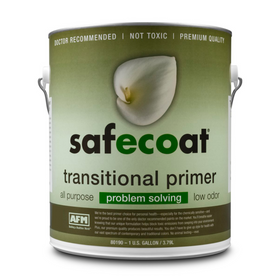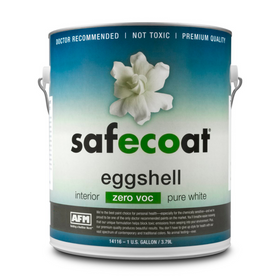
The Best Eco Friendly Glue, Resins and Adhesives for Your Home
Last Updated: Mar 10, 2025Walking into a newly built home brings with it a unique odor that many people refer to as the "new home smell." Some of us might find this smell fresh and appealing. It is the evaporation of a concoction of chemicals found in paints, sealants, flooring, sheetrock, wood, and other common building materials. Glues, caulks, resins, and other adhesive materials are routinely added to several home construction materials. It will increase their durability and performance and regularly off-gas into the home for several weeks or months (and sometimes even longer). Rise has written about the importance of finding low- or no-VOC paints. Similarly, finding VOC-free glue, resins, and adhesives for home interiors is an important strategy to maintain healthy indoor air quality for you and your family.
Causes of the Sick Building Syndrome
Sick building syndrome (SBS) has been known to cause many adverse health effects, especially in people who occupy a recently built or renovated building. Adverse health effects can include headaches, dizziness, nausea, eye, nose, throat irritation, dry cough, dry or itching skin, difficulty concentrating, fatigue, and increased incidence of asthma attacks. According to the U.S. Environmental Protection Agency (EPA) estimates, one of the primary causes of sick building syndrome are the volatile organic compounds (VOCs) emitted from "adhesives, carpeting, upholstery, manufactured wood products, copy machines, pesticides, and cleaning agents." In almost all of these products, resins and glues are among the primary emitters of VOCs and routinely contain formaldehyde, which is considered a probable human carcinogen.
Phenol-Formaldehyde Resin is one of the most commonly used industrial resins and is widely used in dozens of everyday household products. For example, phenol-formaldehyde is almost universally used as the adhesive to bond plywood products and offers structural and moisture durability. One recent study found that long-term exposure to formaldehyde resins can not only cause respiratory health problems. It might be linked to skin rashes and other dermatological issues.
Other standard adhesives and resins, including glues and caulk products, can routinely contain BPA and phthalates. Exposure to BPA has been linked to fertility problems, male impotence, heart disease, and other conditions. Phthalates are commonly used as solvents in several paint products and, according to one study, can damage the liver, kidneys, lungs, and reproductive system.
What are “Green” Resins and Adhesives?
Are there other options? For thousands of years, people worldwide have learned to identify specific plants that offer adhesive properties. For example, in the desert southwest, indigenous cultures have long added prickly pear cactus juice to the earthen plasters over their homes. The juice from this common cactus is known to help the plaster set and harden. In addition, the juice is a natural stabilizer that increases the water resistance of the home.
Table of Contents
- Hot New Trends in Healthier Glues and Adhesive Products

Today, scientists are developing bio-resins or plant-based resins and glues that offer similar performance standards to their synthetic counterparts. It is drastically reducing the adverse health effects assoc0iated with the off-gassing of VOCs.
Bio resins, or plant-based glues, can be incorporated into several green building products, including manufactured wood products, caulks, and commonly used household glues. Products made from renewable materials such as plant proteins, natural rubber, starch, or cellulose reduce our dependence on the petrochemical industry. It has long dominated the adhesive and resin industry.
Tobias Roberts
Tobias runs an agroecology farm and a natural building collective in the mountains of El Salvador. He specializes in earthen construction methods and uses permaculture design methods to integrate structures into the sustainability of the landscape.











